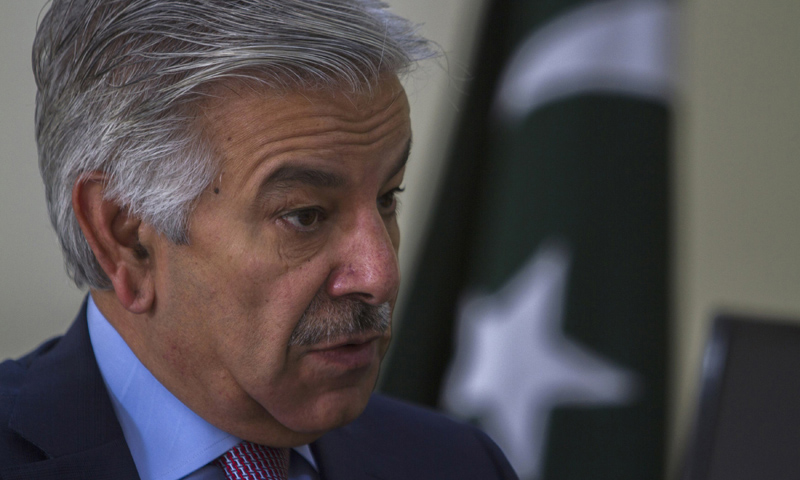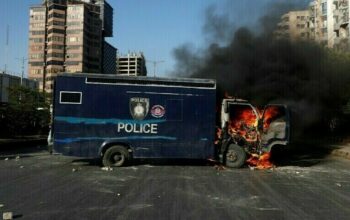By Staff Reporter
ISLAMABAD: Pakistan’s Defence Minister Khawaja Asif has accused Tehreek-i-Taliban Pakistan (TTP) of using Afghanistan soil to launch attacks in the country, particularly in the Khyber Pakhtunkhwa province.
In an interview with the Voice of America, the minister also blamed India for providing help to the TTP through their consulates inside Afghanistan in the past, stating that evidence had been presented to the international community.
“Those who do not have good relations with Pakistan, like India, to name a few, have provided help in the past through their consulates inside Afghanistan … we have also provided evidence to the international community … now they are helping the Taliban,” he said.
During his recent visit to Kabul, Asif raised the issue of increased attacks by the TTP with the Afghan Taliban rulers.
“According to my information on TTP militants, between 7,000 to 8,000 of them have been involved in the war against NATO with the Afghan Taliban,” he said. “In this context, there is a camaraderie between the Afghan and Pakistani Taliban…”
However, the Afghan Taliban had expressed their determination to deal with the problem and not allow their land to be used for terrorism as per the Doha Agreement.
“[In the meeting] The [Afghan] Taliban had expressed their determination to deal with this problem and said that they won’t allow their land to be used for terrorism as per the Doha Agreement.”
The TTP set up as an umbrella group of several militant outfits in 2007, in November last called off a ceasefire agreed upon with the government in June and ordered its militants to stage terrorist attacks across the country.
The group has been blamed for several deadly attacks across Pakistan, including an attack on army headquarters in 2009, assaults on military bases, the 2008 bombing of the Marriott Hotel in Islamabad, and the massacre of 134 children at a military-run school in the northwestern city of Peshawar in December 2014.
The defence minister also said the TTP was equipped with advanced weaponry, including night vision goggles left behind by American forces when they left Afghanistan.
Asif expressed his appreciation for the people of Khyber Pakhtunkhwa, who had recently protested unarmed against the rise of militancy in the region.
“It is remarkable that people are protesting unarmed against the return of the Taliban [in Pakistan]. These people have been poisoned by the Taliban in the past as well. Look at the leadership of PTM [Pashtun Tahaffuz Movement], their relatives were killed by TTP.
The minister admitted that protests against militancy in several areas of Pakistan were often overlooked due to the country’s political situation.
“The recent protests in Khyber Pakhtunkhwa against rising militancy are remarkable, as the people of the province are not ready to co-exist with the TTP,” Asif said.
“What is encouraging is that people protested of their own will. They did not protest in the past. They have realised that they don’t want to live with the TTP, considering the peaceful life they have lived in the last eight to 10 years.”
When asked about the difference between the TTP and the Afghan Taliban, Asif stated that there was none, but the Afghan Taliban seemed to want to distance themselves from the TTP.
“But according to our talks with the Afghan Taliban … it seems that they want to distance themselves from the TTP… Afghan Taliban are politically astute people.”
The country’s highest security body last week decided to re-launch the National Action Plan (NAP) within 15 days to crush the resurgence of terrorism in tribal districts along the border with Afghanistan.
The National Security Committee (NSC), at its 41st meeting, has set up a high-level committee to submit recommendations regarding the implementation and limitations of the operation within two weeks.
Copyright © 2021 Independent Pakistan | All rights reserved




